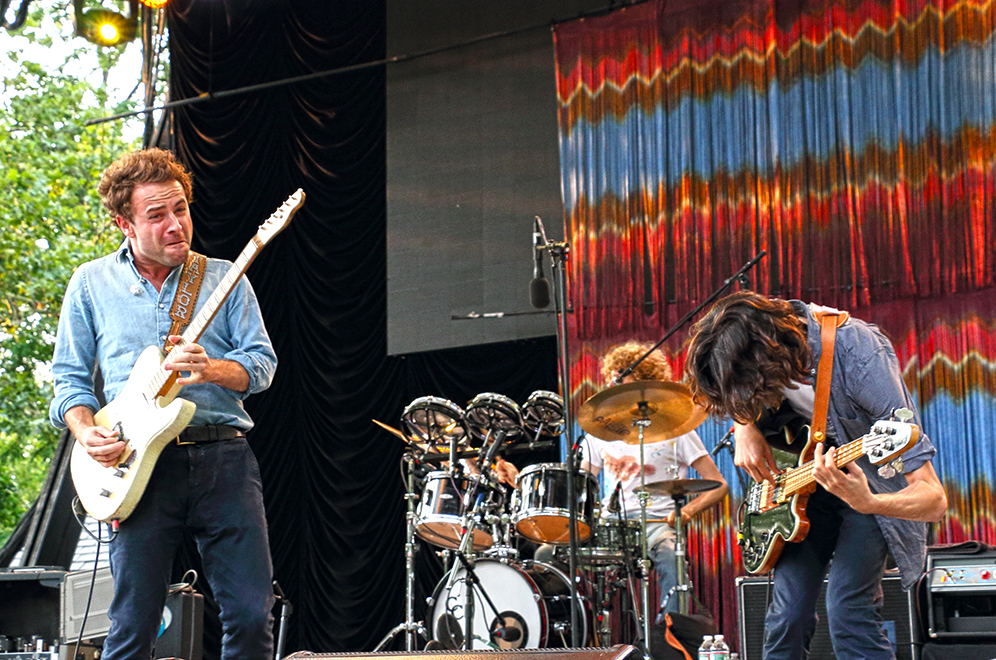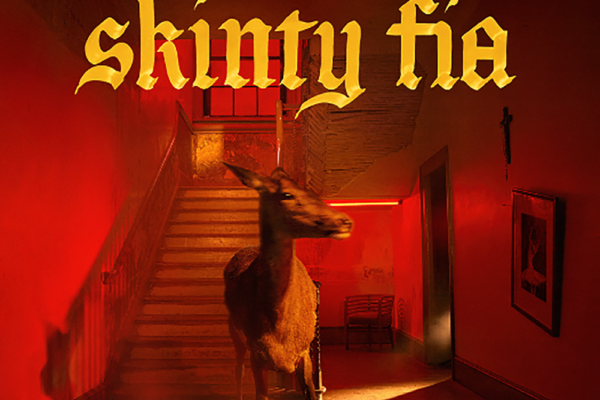Watching Dawes perform live and listening to their records at home can be very different experiences. I first learned of their existence from a live show where they opened for and played as Conor Oberst’s backing band. It was exhilarating, they were energetic, frenetic, kinetic. It was an experience. By the end of the show I was ready to go listen to everything they’d released.
When I did do just that, I was surprised at how mellow they actually are. I had to confront my memory with what was coming out of my computer speakers. Each album was a nuanced compilation of highs and lows, but none really matched the vitality of the live performance. It was with the release of their latest album, All Your Favorite Bands, that I had hoped that they had finally solved this problem.
The lead track, also the lead single, “Things Happen,” begins gently with harmonics that carry as the main motif throughout the song. The riff is frail, slight and barely survives the beginning of the song. It is interesting enough to carry the weight of the song, but for some reason it carries like a car with a flat tire. The vocals are too high in the mix and the band somewhere in the distance. Here the issue isn’t the songwriting, or any of the individual elements of the song, but the performance.
[soundcloud url=”https://api.soundcloud.com/tracks/205142320″ params=”color=ff5500&auto_play=false&hide_related=false&show_comments=true&show_user=true&show_reposts=false” width=”100%” height=”166″ iframe=”true” /]
Jackson Browne, who has always loomed somewhere in the distance of their albums, stands shadowy over the whole album. “Somewhere Along The Way,” has that same charming clunkiness of Browne’s best songs. It is the charm of the always-nearly-broken-down El Camino he sings about on “All Your Favorite Bands.” The title track, which can either be biting or in earnest, is something like a godson to Browne’s “The Pretender.”
“Don’t Send Me Away,” is nothing more than a convincingly updated Laurel Canyon folk song, which needed to go more one way or the other. More folk, or more rock, instead of settling in the easy middle. “To Be Completely Honest” and “Waiting for Your Call” are both competent songs, but again fall flat.
“I Can’t Think About It Now,” is cool and breezy, and is one of the tracks that really hit the mark for me. When they hit double time in the last verse, they really pump you up for the final chorus. The backup singers must have been producer David Rawlings idea, they seem to follow him wherever he goes. “Right On Time,” matches that mark and doubles it. The song actually seems to have some horsepower to it.
My personal favorite song on the album is album closer, “Now That It’s Too Late, Maria.” It’s sweet and tender, and like “I Can’t Think About It Now” and “Right On Time,” it has this oomph to it. Dawes makes the song work for them here, and that’s no easy feat considering that it’s nearly 10 minutes long. The guitar solo here is reserved, dialed down on the tone, capturing that perfect 70s feel. As the song progresses, you get the sense that we are building towards some end, rather than meandering down a meaningless highway.
Whether or not you like this album depends on how well you think the songs were recorded, rather than the songs themselves. Or how well the band members played, rather than the members themselves. And about half the songs just plop. For Dawes, a more than capable band, that’s like sticking a Beetle’s engine into the body of a Camaro. It doesn’t make sense that they wouldn’t use their best attributes in their favor.
Part of me feels like I’m being unduly harsh with Dawes because I do like them so much. The songs that don’t just sit there, the ones that have some movement to them, really are great songs. And their live performances will be a reliable vehicle for them to really show off. They’ve have this reputation as musician’s musicians, a hardworking band from Southern California with something to prove, and now is the chance to do something with it. Here’s hoping that they figure out how to tap into this for the next album.
Article: Christopher Gilson
Cover photo: Shayne Hanley




